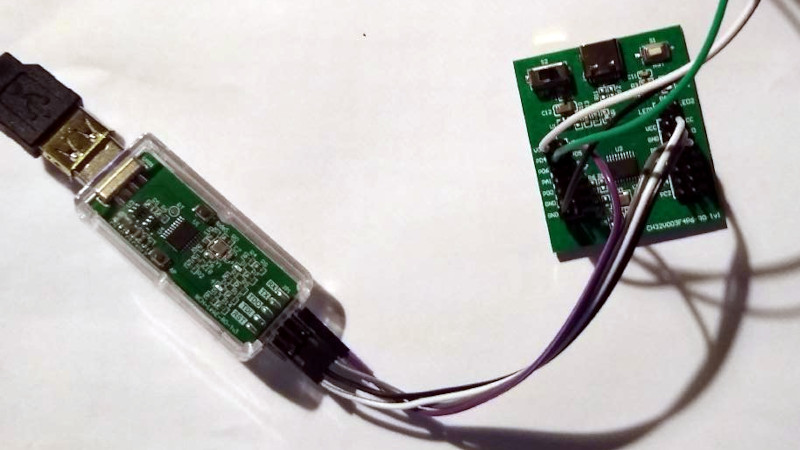Speech recognition was once the stuff of science fiction, but it’s now possible with relatively modest hardware. Just how modest, you ask? How about a 10 cent microcontroller?
[Brian Smith] has achieved a very basic form of speech recognition on a CH32V003 RISC-V microcontroller. It may only recognize spoken digits, but that it does so at all on such a modest platform is impressive in itself.
For training purposes it enlists the help of a desktop Linux computer, however the recognition process is purely in the ten cent chip. He goes into much detail about how it achieves this on a system without floating point arithmetic, as well as the other shortcomings of such a limited platform.
We’ve become used to thinking of super-cheap chips as of limited use, but the truth is they’re surprisingly more capable than expected. We’re seeing them starting to appear as subsidiary processors on some badges, so it will be interesting to see them proliferate in more projects now their availability problems have eased. Go on – for ten cents, what do you have to lose?
















I like the idea of this as a low-power/low-cost wake-word engine.
I was a judge in a regional science fair around 1985, where one bright kid showed off speech recognition working on a Timex Sinclair ZX81. It was trained on a single speaker, and just the numbers 0-9 plus a few other words (“yes”, “no”, a few others), but it was very impressive he got it working at all.
So it’s not like it requires a server farm to do basic speech recognition. Any modern microcontroller would beat that Z80.
(and right next to his exhibit was a kid doing 3D object scanning and real-time point cloud data manipulation, using structured-light image digitization, on an Apple ][. I don’t recall what his image sensor was (Circuit Cellar’s DRAM imager maybe), but his structured light source was a slide projector :-)
Yes, 1985 high school kids. Pre-webcam, pre-GPU, pre-internet, pre-Linux, in a backwater town 6 hours from any major city.
What are the 99.9th-percentile kids working on these days? What’s currently hard but not too expensive, and will be cheap and ubiquitous in a few decades?
In 1990 i had my apple][c do music recognition for science fair. You selected a cassette tape, played it into a connection into the joystick port and it found the beat to ID the song.
My display used Porsche taillights for a spectrum analyzer. Haha
Fun times.
99.99% kids today are stuck swiping at phone screens. their time and attention has been stolen.
Maybe it’s time for HAD to start a column about some smart hacks done by kids these days? I have a strong feeling it’s not kids doing nothing but adults not giving enough attention to their achievements. Smart kids were never as popular as those good in sports or dancing or simply sociable. Today it’s even worse – people would rather watch a guy spinning fidget for 24h (and that was done in 11,5h – “very impressive achievement”) than a kid explaining speech recognition hack he pulled on Arduino for his room automation or how he trained his AI to recognize his cat to open door only for it.
as impressive as this is, I’m a bit worried that transcription is getting so cheap that it will be impossible to not be recorded at all times